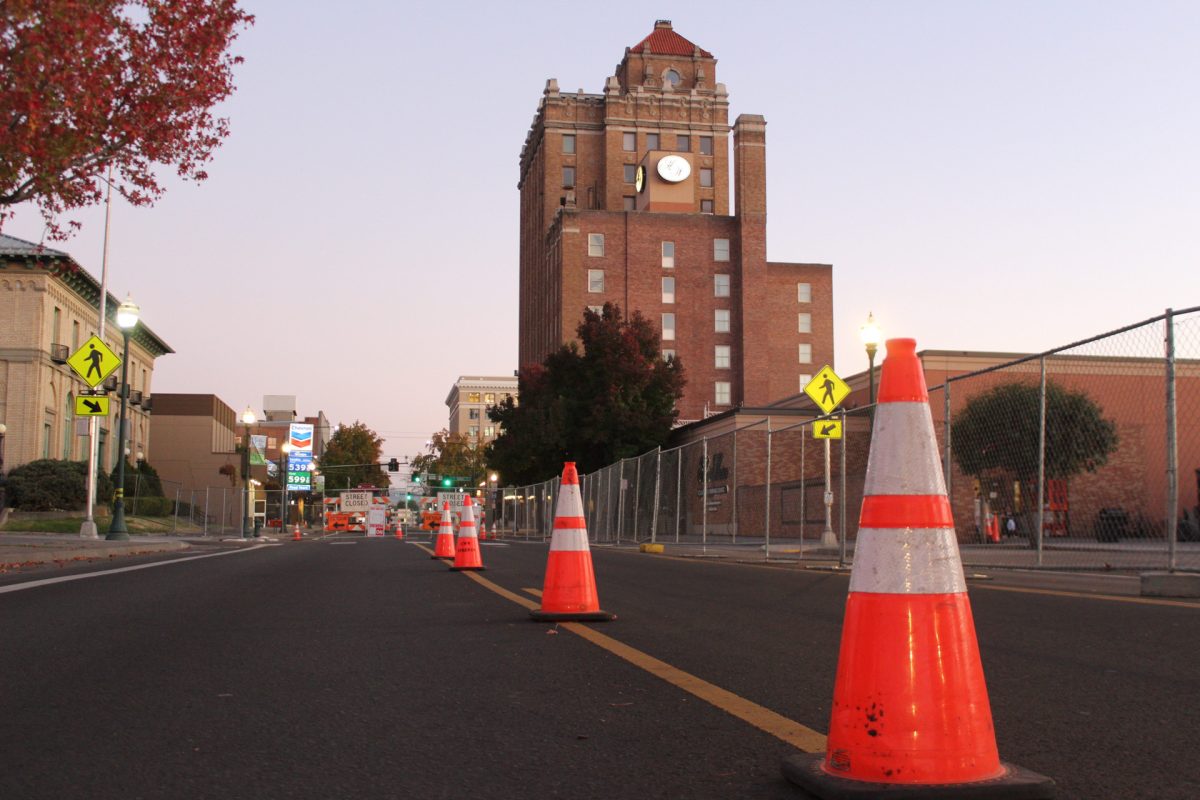“Why do we come here?” said Father Pedro Bautista-Peraza at the Sunday, Oct. 20 morning Mass in St. Patrick’s Church on West Poplar Street in Walla Walla. “Why?” This question of action is at the root of all decisions, religious and nonreligious alike, but when it comes to religion on Whitman College’s campus, the question is usually “Why don’t we come here?”

Active religious participation among Whitman students, and college students in general, appears to be small compared to that of the rest of the population. The small groups of students who do practice their religions, in whatever form, at times feel stigmatized, and thus religious discussion is further muted. Where is the room for religious freedom at Whitman?
“There are people that I avoid talking to about religion because I know they’re so anti-religion it almost defeats the purpose of talking about it,” said sophomore Noel O’Shea.
Granted, this aversion towards religion is likely to be found anywhere, so a number of religious and spiritual clubs have appeared on campus to create communities for those of similar faiths. Such clubs include Whitman Christian Fellowship, Hillel-Shalom, Muslim Student Association, Namaste Meditation Club, Better Together and the nonreligious club Atheists, Humanists and Agnostics. The Office of Religious and Spiritual Life on campus works to create communication among faith groups a reality, and thus is witness to the actual diversity of religious and spiritual clubs available on campus.
“I think that there is far more religious activity and more students in some sort of a spiritual journey than people realize at Whitman,” said Stuart Coordinator of Religious and Spiritual Life Adam Kirtley. “Even students who are heavily involved in their spiritual practice will sometimes tell me that they feel like they’re the only ones, and yet I see so many of them.”
It may be true that there is a large number of small groups invested in faith, but some students still feel unfairly judged for their religious identity. Katie Steen, one of the eight small group leaders of the Whitman Christian Fellowship, laments that fellow students are quick to judge her faith.
“People aren’t very sensitive to Christians on campus, such that they lump them together with other groups like Republicans or the Westboro Baptist Church,” said Steen. “[Some students] don’t really want to hear what you have to say, which is a bummer because I would really like to share it with people, but they don’t seem open a lot of the time.”
Steen also recognizes that Christians are a minority on campus when they are a majority on a national scale. This statistic actually works against Christians on campus, making non-Christian students believe that sensitivity towards Christians is of a lesser value because they are not a perceived minority.
“There’s a weird stigma against Christianity [at Whitman] specifically,” she said. “Christianity is the mainstream [religion in the United States] so it’s okay not to be super tolerant [at Whitman], whereas you need to be tolerant of minority groups.”
Similarly, junior Leslie Rodriguez sometimes feels judged for her Catholic background. In a liberally saturated community, there are certain stereotypes that can follow any type of right-wing associated community.
“I feel like people associate Catholicism with conservatism, and they associate religion with politics, and religion is very personal for me,” said Rodriguez. “I do have intimate discussions about my religion with my friends, but sometimes I feel uncomfortable with people who are very liberal.”
Kirtley believes that Whitman’s reputation of diversity does not stop at religion, and while judgements are inevitable among differences, he wants to make Whitman as open as possible.
“I get frustrated when people say that they have to hide their religious identity, and that makes me know that I have more work to do,” said Kirtley.
Stigmatization of religious students on campus is a reality, but more than that there seems to be simply a lack of discussion of religion on campus. Other religious groups such as Better Together, which focuses on creating religious dialogue, find that perhaps student’s lack of discussion of religion is just due to the pressures of the college lifestyle.
“It seems that there isn’t that much discussion about [religion] on campus, but that might just be that college is a time where people don’t have it as a high priority, and they’re discovering other things, and religion is not the first thing on their mind,” said Co-President of Better Together Joel Ponce. “It’s hard for me to keep myself away from it because I think it does have a big impact on everything that we do.”
If Whitman, then, is seemingly dry of a majority religious fervor, students focus on their own personal relationships with their religions and less on the presence of a student majority community. Religion is focused on as a personal priority and less of a social pressure.

“[St. Patrick’s Church is] about a 10 to 15 minute walk, but I always feel better when I go because it’s so easy to get stuck in that Whitman bubble,” said Rodriguez. “I enjoy the time it allows me to reflect on my week, which I don’t get to do that often.”
Further, perhaps the shift in public religious activity is really just a shift in the function that religion plays in a college student’s life. There is not the pressure of family or a large friend group to force religious activity, and now faith is a personal prerogative, the latent effects of which become more obvious through discussion with close friends.
“[My spirituality] is so community and friendship based that it comes in the form of talking to friends,” said O’Shea.
Even though religion may be a minority, there are still strong communities in small numbers. Hillel-Shalom Vice President sophomore Deborah DeHovitz grew up in a large Jewish community and finds the depletion in numbers by comparison to be a different, but adaptable change.
“[The small Jewish community] was one of the biggest cons to Whitman when I was looking at colleges,” said DeHovitz. “It’s not the same as my Jewish life at home, but it’s turned into something different, and it’s still a community I know that’s there for me.”
Father Pedro Bautista-Peraza answered his question to the attendees of St. Patrick’s Church by suggesting that going to church is one way to “pay for your week.” Even among finals and the social pressures of college, religion and spirituality ripple on the surface in the micro community of Whitman in a diversity of small groups. While it may not be a frequent or easy discussion, religious preference among students only adds to the diverse views that Whitman has to offer.


















